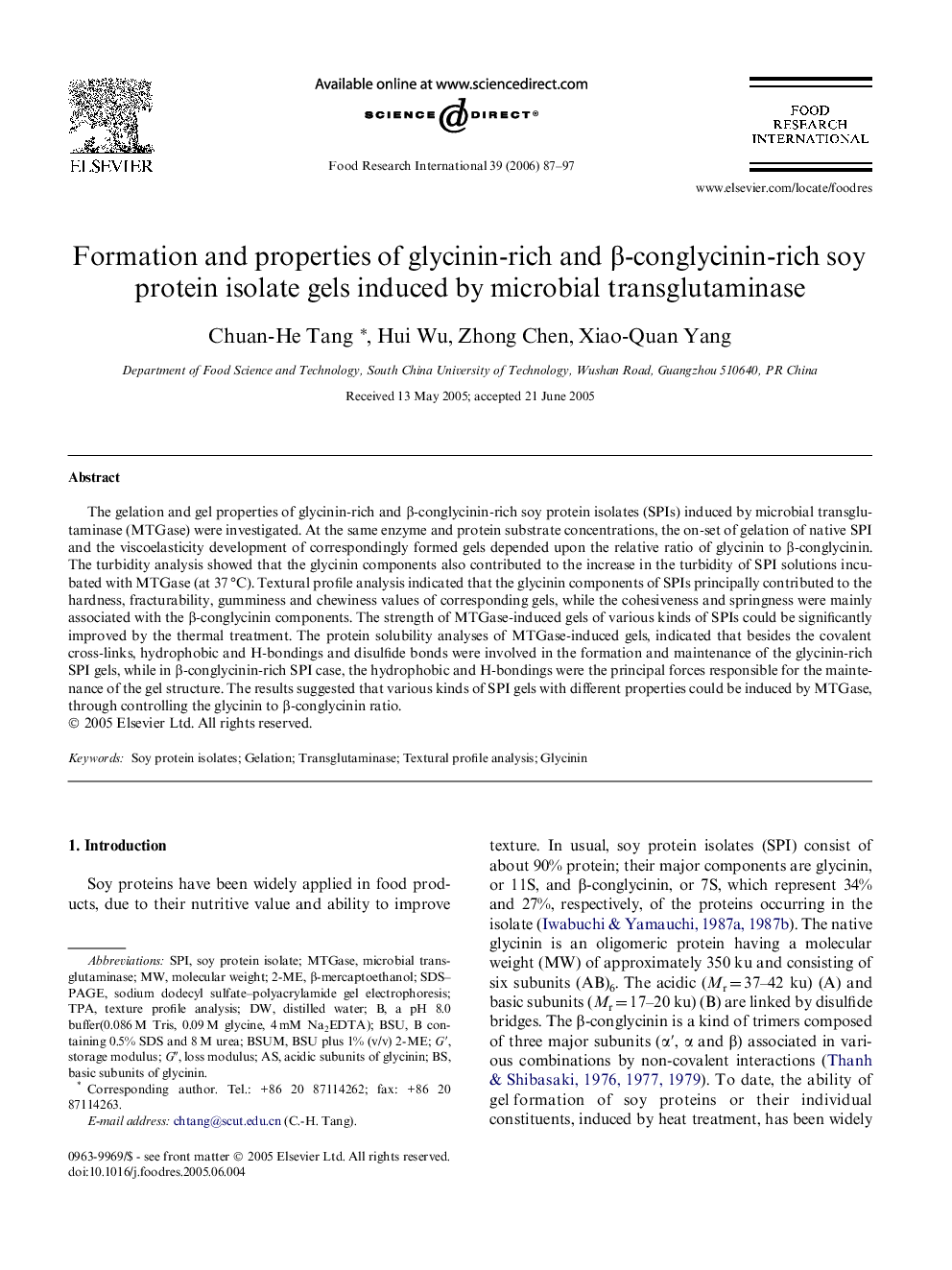| Article ID | Journal | Published Year | Pages | File Type |
|---|---|---|---|---|
| 4563233 | Food Research International | 2006 | 11 Pages |
The gelation and gel properties of glycinin-rich and β-conglycinin-rich soy protein isolates (SPIs) induced by microbial transglutaminase (MTGase) were investigated. At the same enzyme and protein substrate concentrations, the on-set of gelation of native SPI and the viscoelasticity development of correspondingly formed gels depended upon the relative ratio of glycinin to β-conglycinin. The turbidity analysis showed that the glycinin components also contributed to the increase in the turbidity of SPI solutions incubated with MTGase (at 37 °C). Textural profile analysis indicated that the glycinin components of SPIs principally contributed to the hardness, fracturability, gumminess and chewiness values of corresponding gels, while the cohesiveness and springness were mainly associated with the β-conglycinin components. The strength of MTGase-induced gels of various kinds of SPIs could be significantly improved by the thermal treatment. The protein solubility analyses of MTGase-induced gels, indicated that besides the covalent cross-links, hydrophobic and H-bondings and disulfide bonds were involved in the formation and maintenance of the glycinin-rich SPI gels, while in β-conglycinin-rich SPI case, the hydrophobic and H-bondings were the principal forces responsible for the maintenance of the gel structure. The results suggested that various kinds of SPI gels with different properties could be induced by MTGase, through controlling the glycinin to β-conglycinin ratio.
